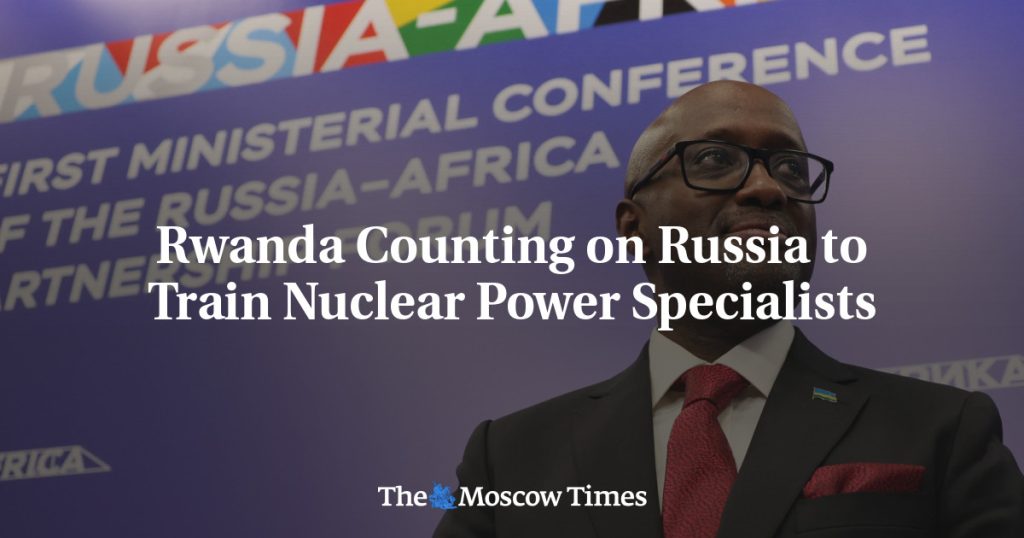Rwanda is looking towards Russia for assistance in training its citizens to become specialists in nuclear energy, as the country sees nuclear power as a way to improve its energy supply. The African country has been focusing on diversifying its energy sources, with a significant portion of its electricity currently being generated from thermal sources and hydro. To further this goal, Rwanda’s Foreign Minister highlighted the need for nuclear energy during the Russia-Africa forum in Sochi, where he mentioned that hundreds of Rwandan students have already graduated from Russian universities with specialization in nuclear science. The hope is to train more scientific managers in the field of nuclear energy to support future projects.
Russia has been actively seeking to expand its diplomatic and economic ties with African countries, offering its expertise in nuclear power as a major incentive for closer collaboration. Rwanda’s partnership with Russia’s Rosatom in 2019 to assist in building nuclear power stations is a significant step towards achieving the country’s goal of utilizing nuclear energy to supplement its current energy sources. In addition to the collaboration with Russia, Rwanda has also secured deals with a U.S. firm and a German-Canadian company for small-scale nuclear power projects within the country. This shift towards incorporating nuclear power into its energy mix demonstrates Rwanda’s commitment to sustainable energy development.
Currently, South Africa stands as the only country in Africa with a commercial nuclear power plant, but Rwanda is taking steps to join the league of nations utilizing nuclear energy for power generation. With a population of around 13 million, Rwanda faces the challenge of meeting its energy demands and ensuring a reliable supply for its citizens. The government’s focus on training specialists in nuclear energy and securing partnerships with international firms for nuclear power projects reflects a strategic approach to addressing these energy challenges and promoting long-term sustainable development.
The investment in nuclear energy and collaboration with international partners like Russia not only addresses Rwanda’s immediate energy needs but also opens up opportunities for economic and technological advancement. As the country seeks to develop its energy infrastructure and increase access to electricity for its citizens, the utilization of nuclear power can provide a reliable and sustainable source of energy. By training its citizens in nuclear science and partnering with experienced firms in the field, Rwanda is positioning itself to become a key player in the African nuclear energy sector, contributing to regional energy security and economic growth.
The Russia-Africa forum in Sochi served as a platform for Rwanda to showcase its commitment to nuclear energy development and seek further collaboration with international partners. As Russia courts African countries for diplomatic and economic ties, the potential for cooperation in the field of nuclear power presents an opportunity for mutual benefit. By leveraging Russia’s expertise in nuclear energy and building strategic partnerships with firms from the U.S. and Germany, Rwanda is poised to make significant advancements in its energy sector and contribute to the overall development of the country.
In conclusion, Rwanda’s focus on nuclear energy as a means to enhance its energy supply highlights the country’s determination to diversify its energy sources and ensure long-term sustainability. Through partnerships with international firms and training programs for specialists in nuclear science, Rwanda aims to establish itself as a leading player in the African nuclear energy sector. The collaboration with Russia and other countries demonstrates Rwanda’s proactive approach to addressing energy challenges and promoting economic growth through the development of a reliable and efficient energy infrastructure. By embracing nuclear power, Rwanda is positioning itself for a future where sustainable energy sources play a key role in driving economic development and improving the quality of life for its citizens.














